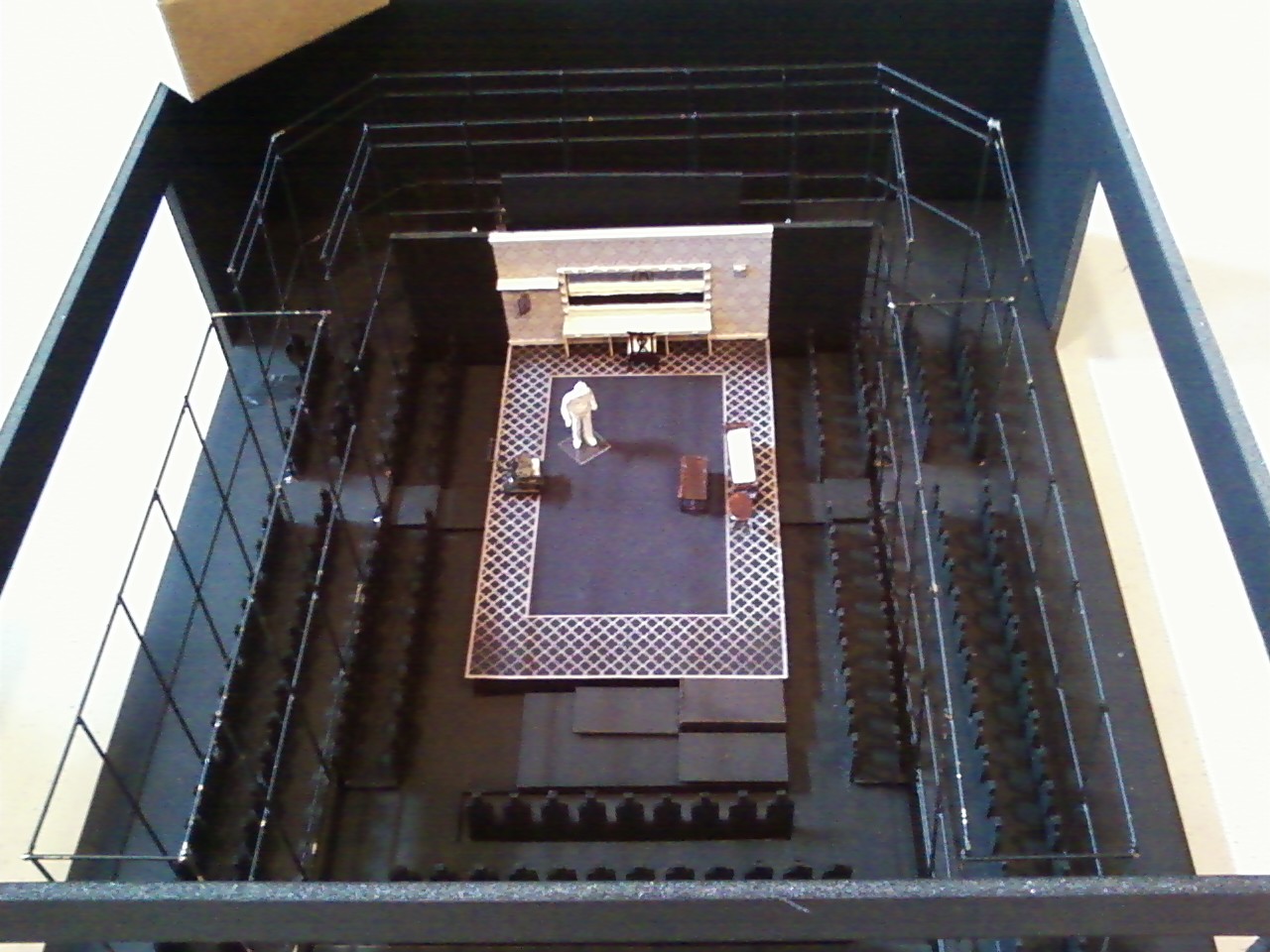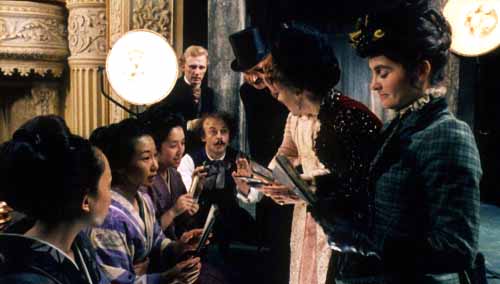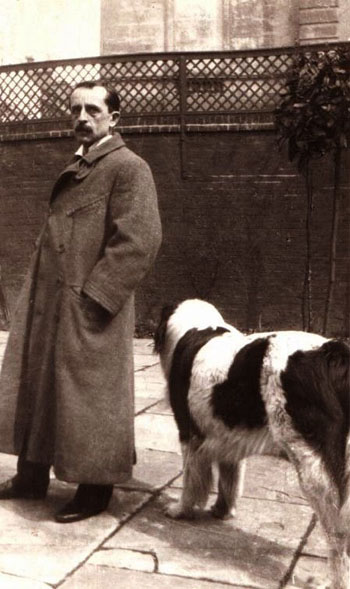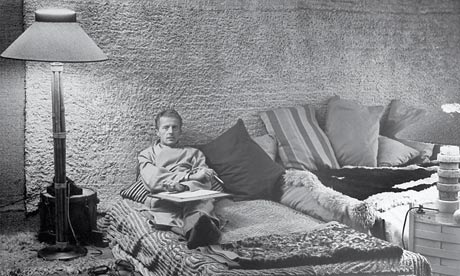 From 2006:
From 2006:
I have a feeling that the reason why awards in the arts tend irresistibly toward irrelevance is that they contradict the essential nature of art. The fact is that there are only two “prizes” worth having, short-term success and long-term acclaim, neither of which can be conveyed by any means other than the uncoerced consensus of the relevant public. Yet as self-evident as that might seem, there is some irresistible impulse built into the human psyche that makes us keep handing out awards anyway….
Read the whole thing here.

 John Douglas Thompson, Gordon Edelstein, and I have a week’s worth of rehearsals for
John Douglas Thompson, Gordon Edelstein, and I have a week’s worth of rehearsals for  Whenever I watch Topsy-Turvy, I’m reminded of how much I love being immersed in the endlessly complex process of rehearsing a show. You feel as though you’ve slipped through a hidden door and vanished into a secret world, a parallel universe populated by variously eccentric geniuses who are totally devoted to lifting your script off the page and bringing it to life. I treasure every minute I spend in their company, and I learn a hundred priceless things each time we assemble in the rehearsal room.
Whenever I watch Topsy-Turvy, I’m reminded of how much I love being immersed in the endlessly complex process of rehearsing a show. You feel as though you’ve slipped through a hidden door and vanished into a secret world, a parallel universe populated by variously eccentric geniuses who are totally devoted to lifting your script off the page and bringing it to life. I treasure every minute I spend in their company, and I learn a hundred priceless things each time we assemble in the rehearsal room. When the spotlight goes out on theatrical fame, it leaves behind impenetrable darkness. A century ago J.M. Barrie was as well known as George Bernard Shaw or Henrik Ibsen. Today “Peter Pan” is the only one of his many plays that continues to be performed in this country, and most Americans think that Jerome Robbins wrote it. Were it not for Mr. Robbins’ much-loved musical-comedy version of the 1904 stage fantasy about a plucky boy who refused to grow up, Barrie would be nothing more than a footnote to the history of Vicwardian theater. Might he be due for a second look? Gus Kaikkonen, the artistic director of the Peterborough Players, thinks so, for his company is currently performing “The Admirable Crichton,” a once-famous Barrie comedy that disappeared from the American stage decades ago–and judging by Mr. Kaikkonen’s brilliantly effective production, it’s a not-so-minor masterpiece…
When the spotlight goes out on theatrical fame, it leaves behind impenetrable darkness. A century ago J.M. Barrie was as well known as George Bernard Shaw or Henrik Ibsen. Today “Peter Pan” is the only one of his many plays that continues to be performed in this country, and most Americans think that Jerome Robbins wrote it. Were it not for Mr. Robbins’ much-loved musical-comedy version of the 1904 stage fantasy about a plucky boy who refused to grow up, Barrie would be nothing more than a footnote to the history of Vicwardian theater. Might he be due for a second look? Gus Kaikkonen, the artistic director of the Peterborough Players, thinks so, for his company is currently performing “The Admirable Crichton,” a once-famous Barrie comedy that disappeared from the American stage decades ago–and judging by Mr. Kaikkonen’s brilliantly effective production, it’s a not-so-minor masterpiece… Music is even more central to “The Glass Menagerie,” Tennessee Williams’ first stage success, which was scored by Paul Bowles in three days for a flat fee of $50. I doubt that so small a sum has ever been spent to better effect by a producer. A minute after the curtain goes up, Tom Wingfield, the narrator, speaks these words: “The play is memory. Being a memory play, it is dimly lighted, it is sentimental, it is not realistic. In memory everything seems to happen to music.” Underneath his speech you hear a distant, delicate musical phrase that sounds as fragile as spun sugar. Variations on this phrase are heard at key moments throughout the play, usually in connection with the collection of glass animals owned by Laura, Tom’s shy sister, who fears life and lives in a world of dreams….
Music is even more central to “The Glass Menagerie,” Tennessee Williams’ first stage success, which was scored by Paul Bowles in three days for a flat fee of $50. I doubt that so small a sum has ever been spent to better effect by a producer. A minute after the curtain goes up, Tom Wingfield, the narrator, speaks these words: “The play is memory. Being a memory play, it is dimly lighted, it is sentimental, it is not realistic. In memory everything seems to happen to music.” Underneath his speech you hear a distant, delicate musical phrase that sounds as fragile as spun sugar. Variations on this phrase are heard at key moments throughout the play, usually in connection with the collection of glass animals owned by Laura, Tom’s shy sister, who fears life and lives in a world of dreams….